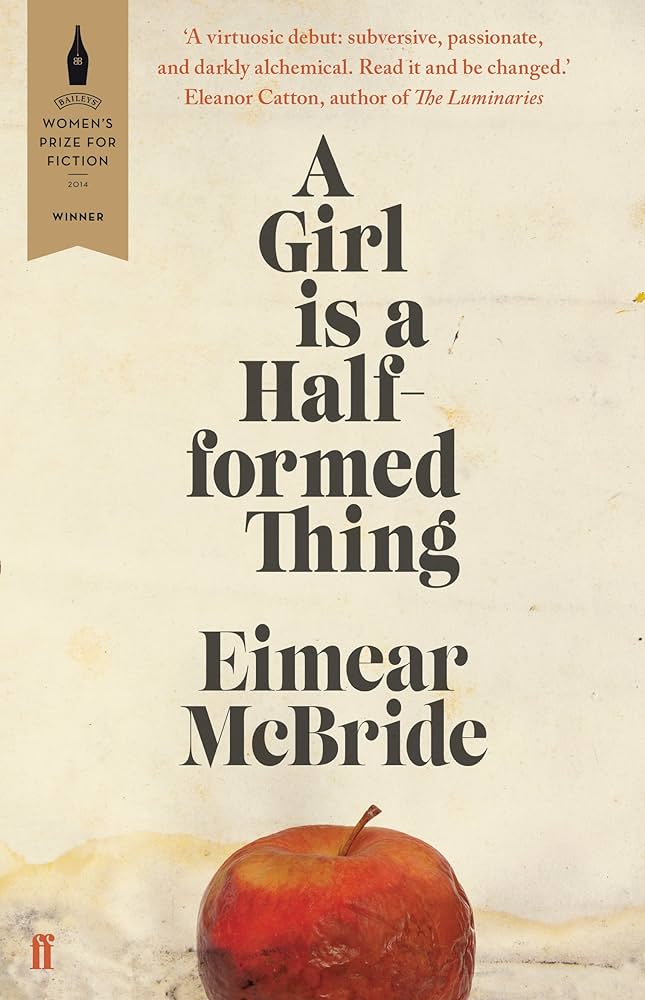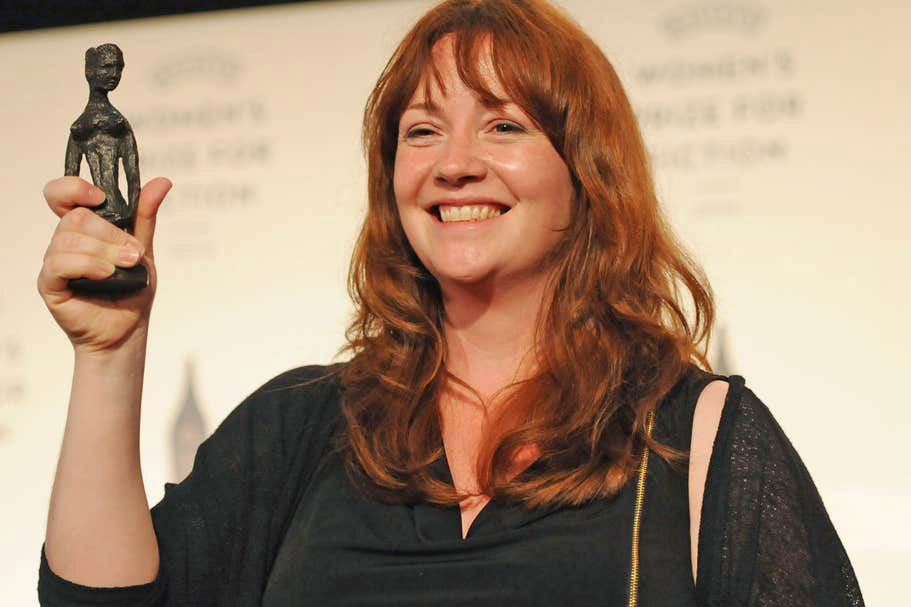From the Women’s Prize Archives.
2020 marks the 25th anniversary of the Women’s Prize for Fiction, and we’re celebrating a quarter of a century of phenomenal winners. We caught up with 2014 winner Eimear McBride to discuss what it was like to win with her debut A Girl is a Half-Formed Thing.
Tell us about your experience of the Prize, from being longlisted to winning?
I never expected to be longlisted so I didn’t stay up for the midnight announcement. I was pretty surprised when I turned my phone on the next morning. Similarly, when the email came through that I’d been shortlisted, I was again pretty surprised. No one thought I’d win. I certainly didn’t, so I had a grand old time the night before at the readings, and was feeling rather the worse for wear the day of the ceremony. I just thought it would be a last hurrah for the book and that I should enjoy it, which I was doing until the moment my name was read out. Then I thought I was going to keel over. It was great though and everything really changed after that.
Tell us about the circumstances of you writing the book – where were you, how long did it take, etc.?
I was living in Tottenham when I wrote A Girl is a Half-formed Thing. I wrote it over the course of about six months, a decade before I won the prize. It took a long time to get it published. Finally tiny Galley Beggar Press in Norwich took it on. I don’t think any of us thought it would have the success it eventually did.
What was the practical impact of winning the Prize? (e.g. economic freedom for a time via the Prize money, more visibility, higher sales, more opportunities?)
The Women’s Prize is a very mainstream prize and A Girl is a Half-formed Thing is the opposite of a mainstream novel so winning the Women’s Prize immediately brought a readership I could never have reached otherwise. And that’s what every writer wants; for readers to take a chance on their book.
As you reflect on it, what does winning the Prize mean to you now?
It changed the public aspect of my working life enormously, for better and worse. Mostly for better. But, more importantly, it bought me time to write and then the possibility of negotiating better advances, which also bought me time to write and there’s nothing more valuable than uninterrupted time to write.
Did winning the Prize change anything about your craft, the way you write?
No

What would be the key tip you would give to others writing creatively?
Don’t waste your time reading tips. If you’re any good it’s going to be hard so just accept that and get on with it.
In your view are there challenges that are unique to women who write?
The industry, rather than writing itself, holds unique challenges for women. There are a lot of lazy, powerful men out there who don’t like to be made to think about how people who are different to them experience the world and then choose to express that difference.
The Women’s Prize is celebrating its 25th anniversary this year. What piece of advice would you give your 25 year-old-self? Or to yourself 25 years ago?
25 years ago I was 17. If I could say anything to my 17 year old self it would be ‘One day the next three years will prove very useful, so take more photos’
What book by a female author would you like to recommend to readers?
The book I recommended on the night of the Women’s Prize readings was The Country Girls by Edna O’Brien and I’m going to stick with her.
What are your feelings on the Women’s Prize for Fiction more generally – why is it valuable for readers and writers, and why should people support it?
People should support it because the bias against women’s writing is real and vertiginous. As a writer I find that infuriating and as a reader I find it incredibly patronising. Great women’s writing is passed over, ignored or ridiculed all the time and this prize goes some way to redressing that.



